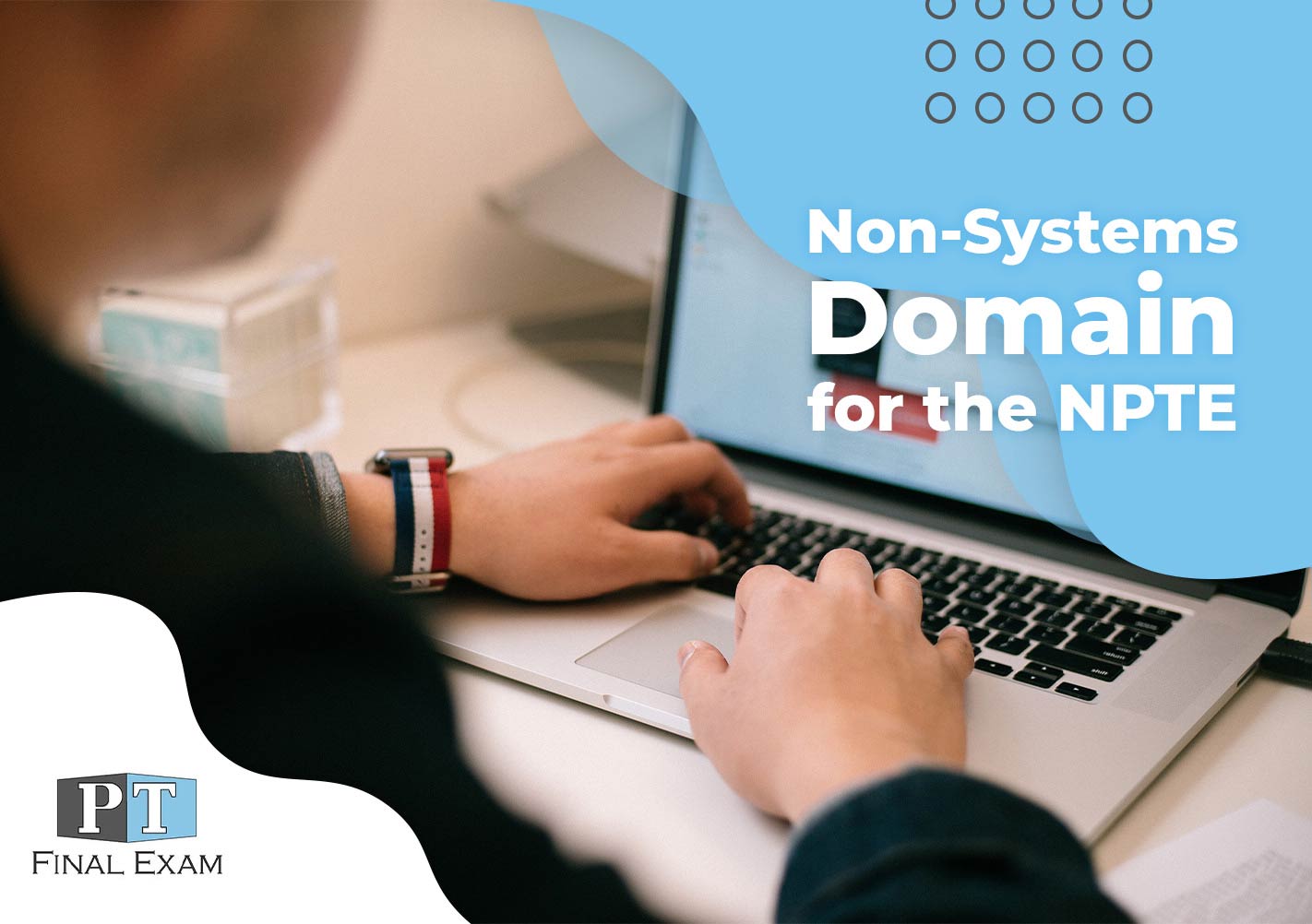Hey everyone!
As always, I hope that things are going well for you in this awesome new year. 2017 is off to a roaring start, and I hope that you are yours are well and safe.
I get emails all the time about 2 of the most difficult sections on the NPTE: Non-Systems and Interventions.
In an effort to decode and demystify some of the content that you need to study for the exam, I’ve put together a series of short videos that will take you through the Research and Professional Responsibilities section of the Non-Systems Domain.
Although I tried to be as thorough as possible, it is impossible to go through every single item that could possibly be tested on the NPTE. However, these are the most core principles, and are listed specifically on the FSBPT Content Outline that describes the content of the exam.
Topics in these videos include:
- Research and evidence based medicine
- Levels of research
- t-test
- z-score
- Sensitivity and Specificity
- Malpractice
- ADA compliance
- HIPAA compliance
- and many, many more!
I’m looking for feedback on these videos to see what you would like to see or change in the future.
Just a disclaimer–I put a ton of work into these videos, so thus I’m asking for an email address in return. Simply enter your email and you can view the whole playlist (almost 2 hours of content that is EXTREMELY pertinent to the NPTE). I want these to be of benefit, so please let me know how I can serve you best.
I wish you all the best in your studies! Let me know what you think of these! admin@ptfinalexam.com


9 thoughts on “Non-Systems Domain for the NPTE”
I would love to see those videos. Thank you for all your work. Lucy.nemes@gmail.com
Really helpful.
Awesome video will, the only thing is the sound is too low
Very helpful, just a slight comment to also include learning principles, feedback schedules. I know they are straightforward, but somehow I keep missing them on the practice exams. Thanks Will and your team for the encouragement!
Awesome videos – thank you!
Thank you so much Will for sharing this video.. It helped me a lot in understanding Reasearch as welll as professional roles, which I used to find it tricky..
Great job 🙂
thank you so much you guys are the best
very helpful video
Its a great video. Thank you!
Comments are closed.